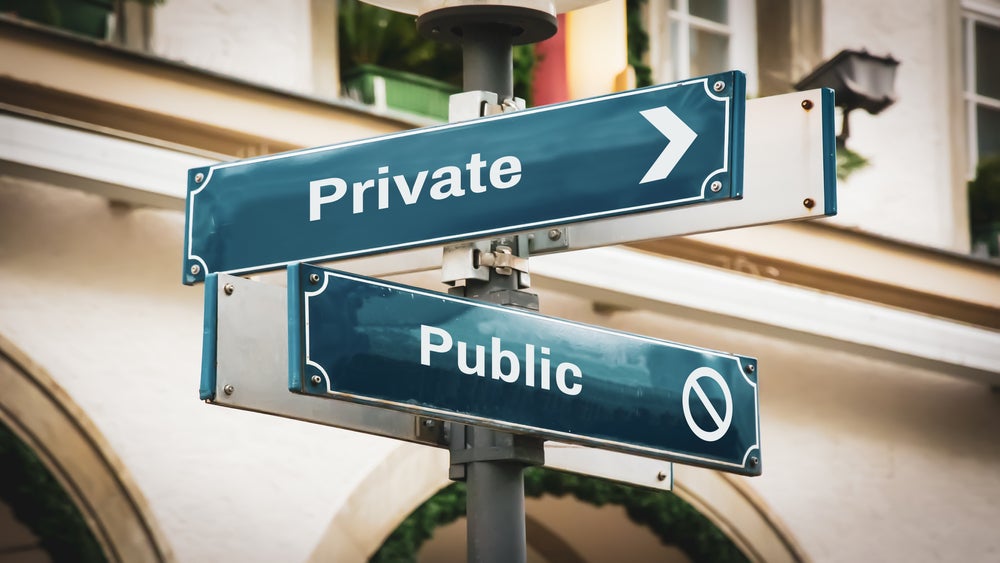Banner artwork by Pretty Vector / Shutterstock.com
From our CEOs’ point of view, we general counsel have a simple job regarding legal disputes: Get rid of them so we can all get back to running a business.
Of course, the complexities of 21st-century litigation — especially after caseloads piled up during the pandemic — make the process slow, painstaking, and expensive. “Get it done” is, unfortunately, a lot easier said than done.
It’s inevitable that our companies will get into disputes over money, contracts, and other matters, but in-house attorneys can influence where these issues will be resolved. We can draft contracts to specify courts as venues for lawsuits or direct parties to alternative dispute resolution (ADR) like arbitration and mediation.
The question of which is better — court or ADR — prompts the classic lawyer answer: it depends.
I serve as GC for an ADR provider I co-founded three years ago, and we know everyone’s answer to the question will vary. In my years in legal practice, including as general counsel for a leading meal kit delivery company, as an outside general counsel for business owners, and as a law firm associate, here is what I have observed.
Good cases for court

In my experience, if a legal problem involves huge sums of money or legal rights without which your company cannot operate, a court is probably the best place to resolve the matter.
In that space, you are entitled to as much discovery and motion practice as the judge will allow, along with appeals up to a state or federal high court.
In such a “bet the company” matter, the time and expense of courtroom litigation is likely worth it. A good example is when Google’s Waymo subsidiary in 2017 sued Uber, claiming that Uber illegally accessed self-driving trade secrets when it hired Waymo's top engineer. Nothing could have been more important to each party, so they went to court and fleshed out the issues in a year of litigation before what was expected to be a trial lasting up to a month (getting to trial in a year was a victory in itself, given court statistics at the time showed that federal civil suits lingered 27 months before trial; that figure is 34 months now).
Five days into trial, the matter settled, with Waymo securing US$245 million in equity in Uber. The sudden ending doesn’t mean either party would have been better served in ADR, however. Settlements are just how most cases get resolved, because the months or years of litigation – and the impending verdict – have narrowed the issues and clarified for each side what their options are.
Going to court may be your best move also if the matter concerns the reputation of your company or top executives.
Going to court may be your best move also if the matter concerns the reputation of your company or top executives. Look at the recent defamation case brought by Dominion Voting Systems against Fox News. They likely needed the intense motion practice and discovery before settling on the eve of trial for US$787.5 million.
Like Waymo-Uber, the Fox-Dominion case demonstrates why high-profile reputation matters may need full court treatment. But the case’s conclusion also illustrates the benefits of 21st-century ADR. The deal was mediated by an experienced professional who conducted the entire process while on vacation in Europe. If a matter as complex and heated as that one can achieve a settlement, so many of the more common types of cases could be dispatched by ADR.
Where does ADR work best?
While the aforementioned cases drew headlines, most matters on a GC’s docket come from more routine disputes that add up in cost. A survey by Norton Rose Fulbright of 430 top in-house counsel reported that GCs spend about US$1.7 million on disputes for every US$1 billion of their companies’ annual revenue.

The GCs also said most litigation came from these areas, in order of prevalence: employment/labor; contracts; regulatory/investigations; cybersecurity/data protection/data privacy; class actions; and product liability. Except for the regulatory/investigations cases, many of these matters could benefit from ADR, if the companies, their employees, tech vendors, and customers agree to resolve issues that way.
Some companies may shy away from ADR to avoid claims that a private forum is a self-serving method of hiding bad conduct. To be sure, no company wants their dispute aired on the internet, but there are more mundane — though no less important — reasons companies want privacy. GCs of professional sports teams, for example, say that they occasionally have to sue big sponsors and luxury box ticketholders to collect their payments, but hauling customers into court where disputes play out in public is not a good look for anyone.
Understanding legacy vs. modern approaches
Anyone considering ADR should note the evolving differences in processes, which have generally developed into two types of providers. First there are the legacy arbitration providers, which resemble court litigation, allowing litigants to dive deep into the legal issues. That means matters may still run long on time and cost as parties leave no stone unturned, but the process will be largely private.

Artwork by BlueBoeing / Shutterstock.com
Second, newer ADR options offer the same privacy benefits along with speed and cost efficiency, making them useful for the more routine disputes that do not need extensive discovery or motion practice.
Regardless, the right ADR process helps lower the temperature on litigation in ways that give companies a fighting chance at reclaiming relationships with customers, vendors, employees, and other partners. If an arbitrator limits discovery so that parties don’t stumble into trench warfare over thousands of extraneous emails, for example, litigants won’t spend as much money or energy arguing over issues that have nothing to do with the underlying dispute. If a qualified neutral hears and reviews each side of the matter and renders a thoughtful decision quickly, the parties can move on from these routine problems. This quick, inexpensive, and more importantly, pragmatic, path to resolution benefits plaintiffs and defendants alike, regardless of the type of dispute.
Newer ADR options offer the same privacy benefits along with speed and cost efficiency, making them useful for the more routine disputes that do not need extensive discovery or motion practice.
ADR can also provide a mediator to evaluate matters, give each side a realistic view of their risks and potential rewards in court and, perhaps, identify cases in which the sides are close enough to attempt a settlement. Seeing matters through the eyes of a skilled mediator can help resolve emotionally charged disputes. And as seen in the Dominion-Fox case, current technology allows parties to access mediation services without investing time and money in flights and hotels.
Shaping tomorrow’s dispute resolution
The benefit of ADR for routine cases is that companies, with the agreement of their partners, can decide how they structure litigation and limit the pain points of traditional litigation. In these processes, companies have to be prepared to lose some matters, but doing so will cost a lot less than it would take to fight everything in court.
Disclaimer: The information in any resource in this website should not be construed as legal advice or as a legal opinion on specific facts, and should not be considered representing the views of its authors, its sponsors, and/or ACC. These resources are not intended as a definitive statement on the subject addressed. Rather, they are intended to serve as a tool providing practical guidance and references for the busy in-house practitioner and other readers.



